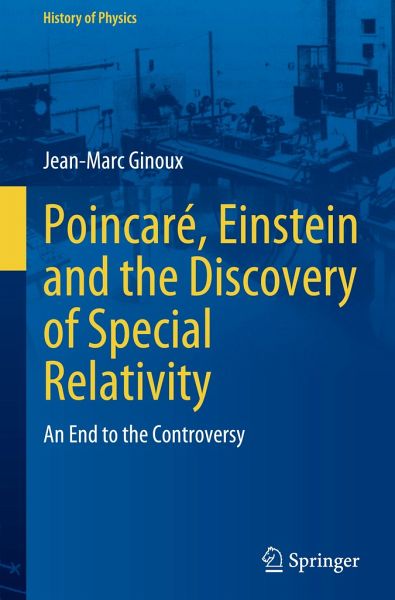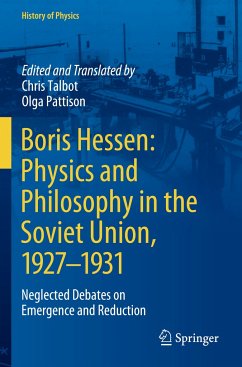
Poincaré, Einstein and the Discovery of Special Relativity
An End to the Controversy
Versandkostenfrei!
Versandfertig in 6-10 Tagen
106,99 €
inkl. MwSt.
Weitere Ausgaben:

PAYBACK Punkte
53 °P sammeln!
1905 is probably the best-known year in physics, since it was the year of the discovery of the special theory of relativity. For decades, historiography has told us that Albert Einstein, then a patent examiner in Bern, succeeded in developing this theory on his own, overcoming all the difficulties that the greatest scientists of his time had not been able to solve. However, some have pointed out that, before Einstein's first publication in this field, the French mathematician and physicist Henri Poincaré had obtained the same results, which he had published several months before Einstein. Yet...
1905 is probably the best-known year in physics, since it was the year of the discovery of the special theory of relativity. For decades, historiography has told us that Albert Einstein, then a patent examiner in Bern, succeeded in developing this theory on his own, overcoming all the difficulties that the greatest scientists of his time had not been able to solve. However, some have pointed out that, before Einstein's first publication in this field, the French mathematician and physicist Henri Poincaré had obtained the same results, which he had published several months before Einstein. Yet today, this theory is known as Einstein's special theory of relativity. Thus, considering the indisputable anteriority of Poincaré's contributions, there is only one real question that needs to be answered:
Why didn't Poincaré claim the authorship of special theory of relativity?
After recapping on the ideas and concepts of the special theory of relativity in a manner accessibleto non-specialists and recalling the historical context of the discovery of this theory, we will answer this question and thus put finally an end to this long-running controversy.
Why didn't Poincaré claim the authorship of special theory of relativity?
After recapping on the ideas and concepts of the special theory of relativity in a manner accessibleto non-specialists and recalling the historical context of the discovery of this theory, we will answer this question and thus put finally an end to this long-running controversy.












